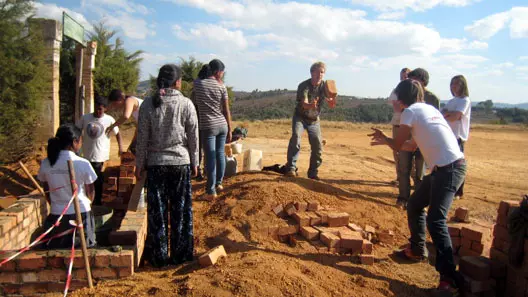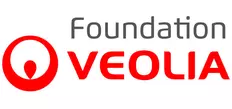
Humanitarian and Development
Place
Ambohitsaratany, Madagascar
Sponsor
Stéphane Galfré
Grant(s)
10,000 € to the Selection Committee at 2011/04/05
Project leader
Vive l'enfance solidarité Madagascar
"I simply had to become the sponsor of the project, whose general interest contributes to sustainable development and corresponds to the values of humanism and solidarity of the Veolia Environnement Foundation."
Stéphane Galfré
Ambohitsaratany, a poor village lacking water and electricity, lies at the center of Madagascar. Here, life is hard, 80% of the rural population live on less than one euro per day; infant mortality is very high and life expectancy is no better than 48. In consequence, the children primarily seek something to eat and attend school very little, if at all.
The program set up by Vive L'Enfance Solidarité Madagascar, a nonprofit created in October 2010 by teachers and students of the International Montessori School of Bailly (78), aims to enable the population of Ambohitsaratany to receive essential services, namely electricity and irrigation of the vegetable gardens.
The children are the project's direct beneficiaries
With the good local insolation, the village receives an annual average of 4500Wh/m2, giving it the advantage of a major solar energy resource. In 2011, Vive l'Enfance Solidarité Madagascar wishes to install electricity, via solar panels, in the village school and canteen, and also drill two boreholes to irrigate the vegetable gardens intended to feed the school children and the villagers. To carry out its projects, the nonprofit has decided to form a partnership with a French nonprofit, Varymad, and its local correspondent, the nonprofit Fivoarana, who have complementary objectives.
These children (110 students) will be the direct beneficiaries of the project, which also helps create four jobs, paid by Fivoarana. Two cooks, a gardener and a technician in charge of maintaining the batteries and electrical equipment, will be hired on open-term contracts.
The Veolia Foundation is participating in the purchase and installation of the solar panels.

